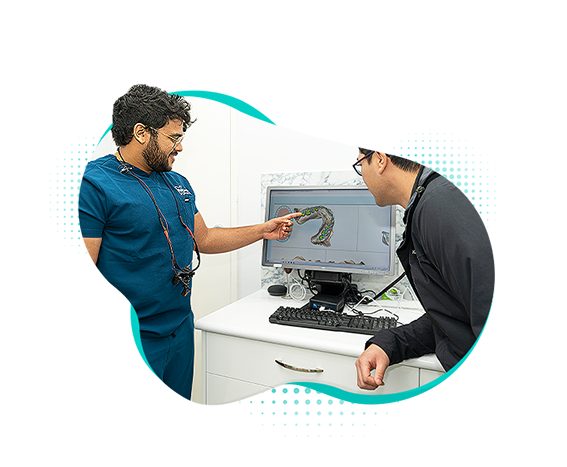Root Canal Therapy
At Bull Creek Dental, we are proud to offer complete care for all your dental health.
or
Root Canal Therapy
At Bull Creek Dental, we are proud to offer complete care for all your dental health.
or
- Home
- Root Canal Therapy
- Home
- Root Canal Therapy


Root Canal Therapy
Root canal therapy is an effective method to remove bacteria from the infected teeth. It is also called endodontic therapy which means the treatment of the teeth from inside. RCT is done when the patient has tooth decay. The decay reaches the innermost layer of the tooth, causing pain and inflammation. When a person goes through root canal treatment, the infected pulp is cleaned to relieve dental pain and also save the natural tooth from reinfection.
Root Canal treatment is performed by deep cleaning the inside of a tooth. The hollow area is created and a rubber-like material is used to fill the canals. After this, the tooth gets repaired with no more infection like before. Since it becomes more brittle, a crown is used to offer protection to the tooth.
If you are feeling severe pain in your mouth while chewing food, then this is the sign of tooth decay, needing a root canal. For RCT, contact Bull Creek Dental.
Frequently Asked Questions
Root canal treatment, also known as endodontic treatment, is a dental procedure used to repair and save a severely damaged or infected tooth. The treatment involves removing the infected or inflamed pulp (soft tissue inside the tooth), cleaning and disinfecting the root canals, and then sealing them to prevent further infection.
Root canal treatment becomes necessary when the dental pulp inside a tooth becomes infected or inflamed due to deep decay, repeated dental procedures on the tooth, cracks, chips, or traumatic injuries. If left untreated, the infection can spread, leading to severe pain and the possible loss of the tooth.
Common signs that you may need root canal treatment include persistent toothache, sensitivity to hot or cold temperatures, swelling of the gums, darkening of the tooth, and the presence of a pimple on the gum near the affected tooth. However, a proper diagnosis by a dentist is essential to determine the need for a root canal.
Contrary to popular belief, root canal treatment is not as painful as its reputation suggests. The procedure is performed under local anesthesia, ensuring that the patient does not experience pain during the treatment. After the procedure, some post-operative discomfort is normal, but this can be managed with over-the-counter pain medications.
The duration of root canal treatment varies depending on the complexity of the case and the tooth's condition. Generally, it can be completed in one to three appointments, with each appointment lasting around 1 to 2 hours.
After the root canal treatment, the tooth may feel sensitive for a few days, which is normal. Your dentist may prescribe pain medications to manage any discomfort. A dental crown or filling is usually placed on the tooth after the treatment to protect and restore its function.
In some cases, a tooth may require retreatment if the infection persists or returns after an initial root canal treatment. This could happen due to issues such as the missed canals, complex root anatomy, or recontamination of the root canal system.
The only alternative to root canal treatment is tooth extraction. However, it's generally recommended to save the natural tooth through root canal treatment whenever possible, as losing a tooth can lead to other dental problems and the need for tooth replacement options.
Yes, a tooth with a crown or filling can still develop issues requiring root canal treatment. If the tooth's pulp becomes infected or inflamed, a root canal may be necessary to address the problem while preserving the existing dental restoration.
Root canal treatment has a high success rate, with most treated teeth lasting a lifetime. The success of the treatment depends on various factors, such as the tooth's condition, the patient's oral hygiene, and their overall dental health. Regular dental check-ups are essential to monitor the treated tooth's health and ensure its longevity.
Take the first steps toward your perfect smile today!
Schedule An
Appointment Today
- |
Feeling Pain?
Call Us

Take the first steps toward your perfect smile today!
Schedule An Appointment Today
Feeling Pain? Call Us
